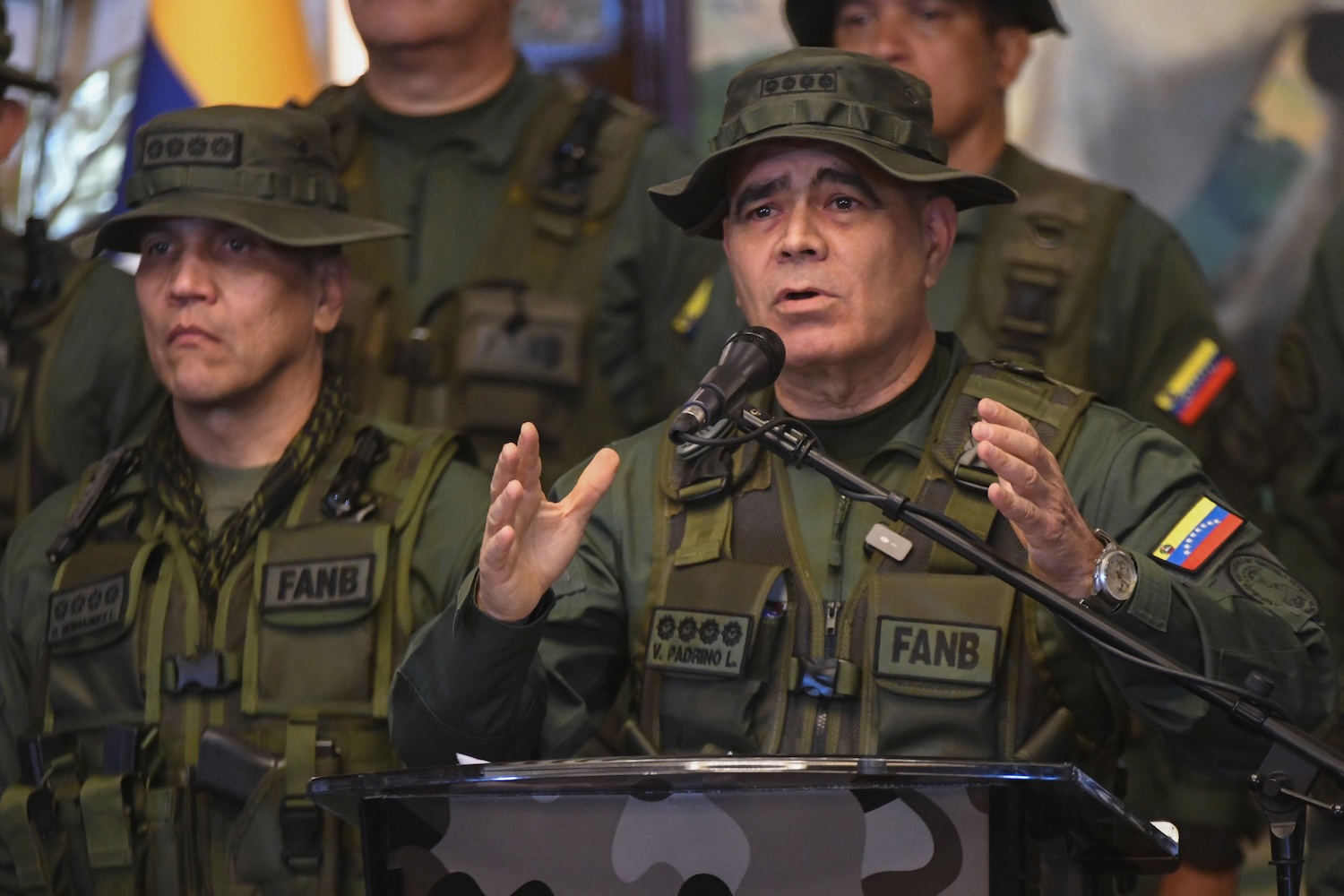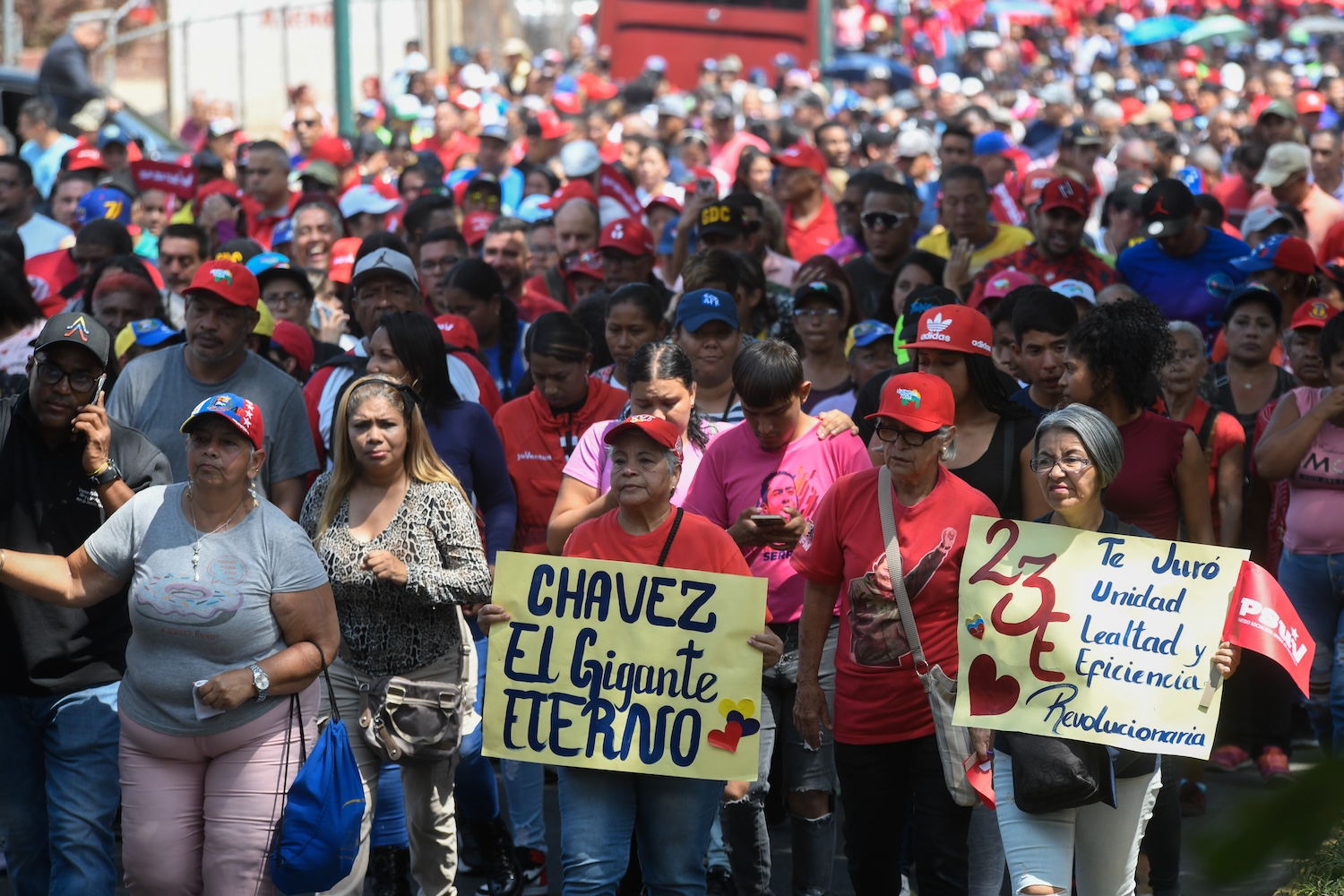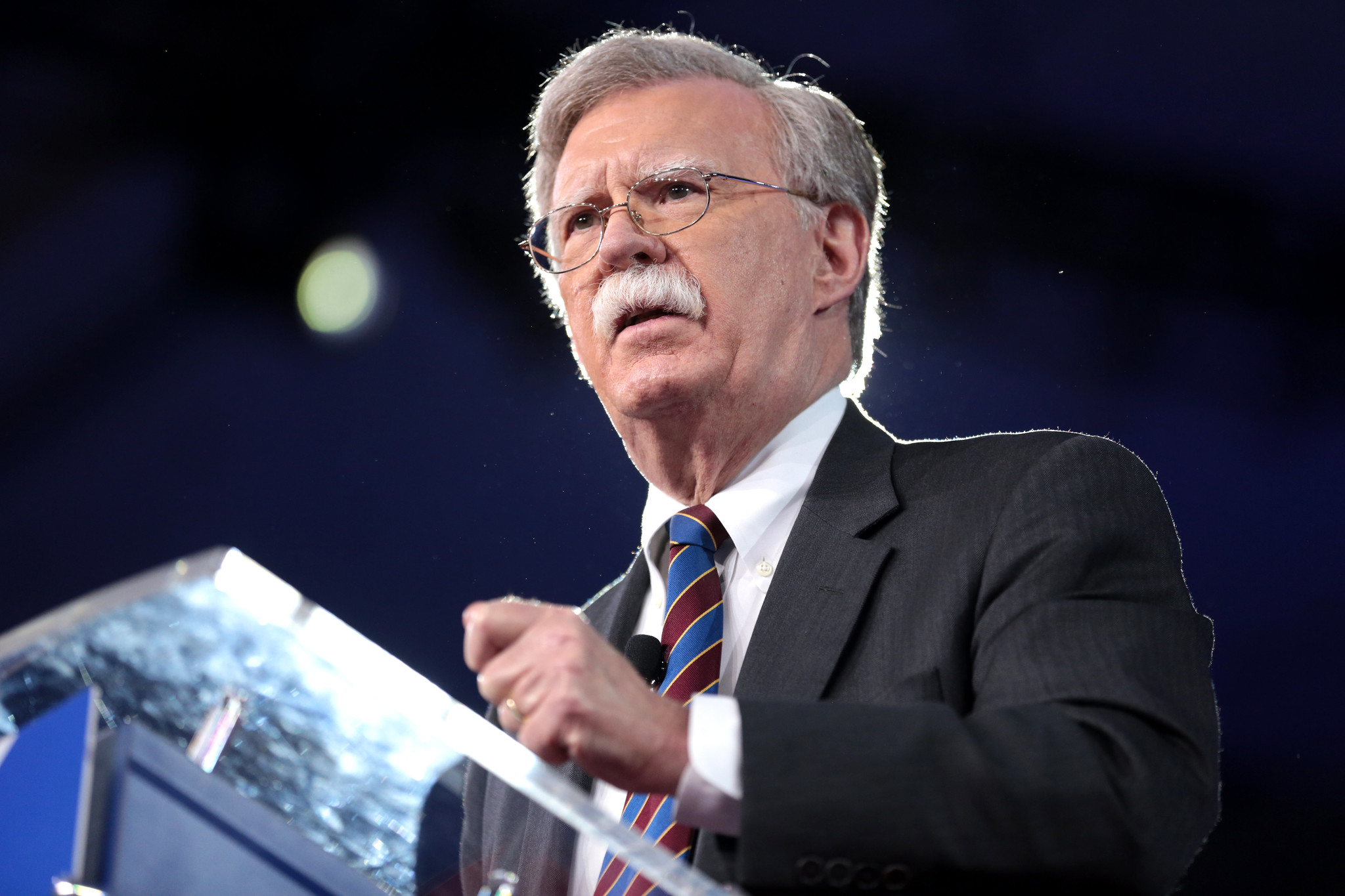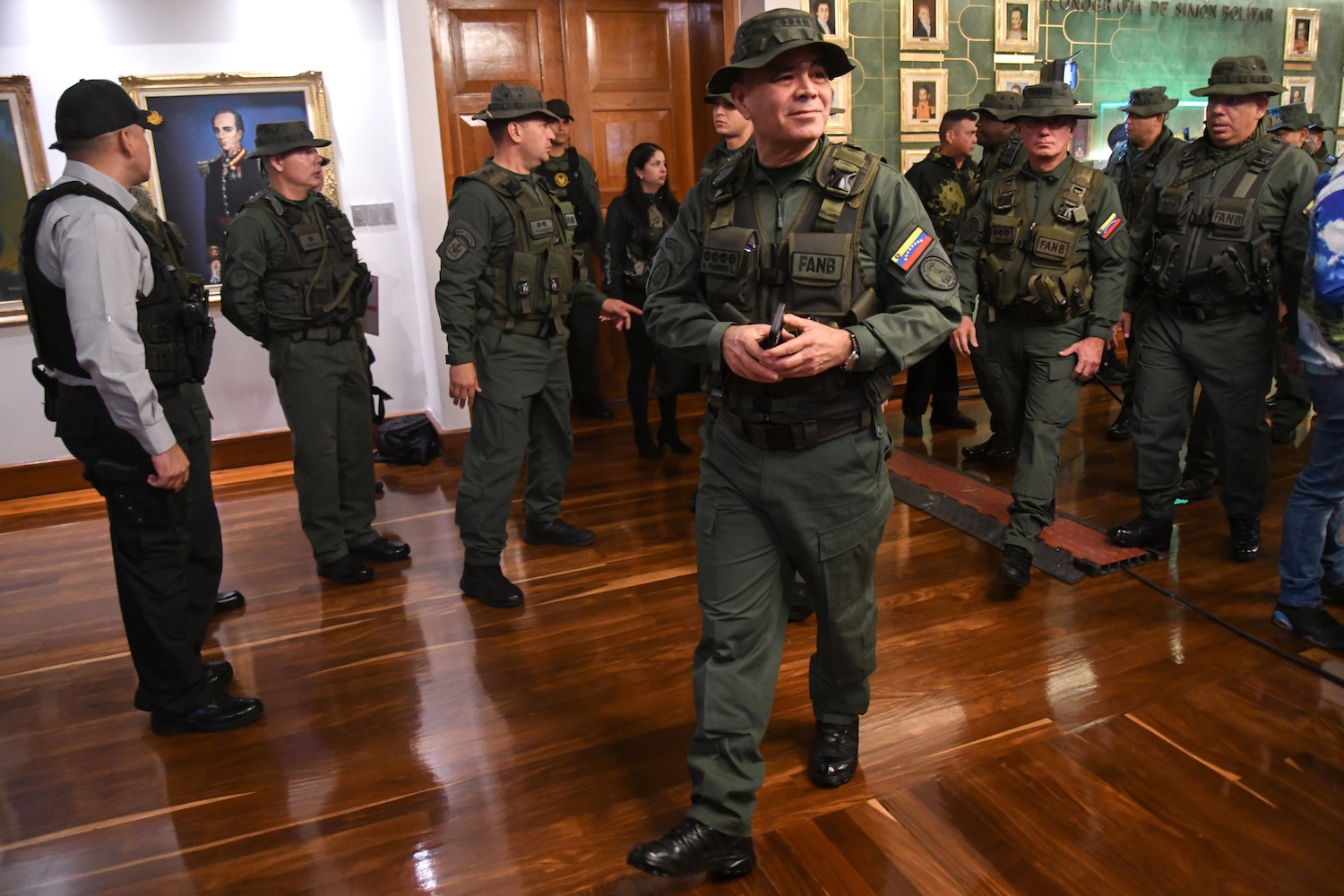Venezuela, the military and interference in the name of what democracy?
Aram Aharonian
Since he took office in 1998, Hugo Chavez initiated a process of transformation of Venezuela in which the military occupies a fundamental place. Chavez incorporated the military into the government, promoted loyal officers and sought to build a set of shared values, based on socialist ideals and anti-imperialism, as well as assigning them new internal roles.
Decades after military governments gave way to a civilian order in Latin America, civil-military relations continue to be a matter of concern. Even those countries with a long democratic history, such as Venezuela, have faced the threat of rebellious military sectors.
Although the government has established weak oversight over the armed forces and has used them in roles that are often considered problematic, its ability to insert them into the framework of its broader political objectives has given it political authority over the military.

There are those who reject the Venezuelan revolutionary process undertaken by Hugo Chavez and the Bolivarian Revolutionary Movement 200 for being headed by a military man and for the prominent role of the military in many state institutions. The armies have traditionally been faithful allies of the ruling oligarchies, and have often acted as repressive forces against attempts at social transformation by the popular classes, as Martha Harnecker pointed out
Shouldn’t generalizations be avoided and, instead, each army be judged according to the situation in which it is inserted? Unlike other countries in the region, in Venezuela, the military has played a relevant role in defense of the decisions democratically adopted by the Venezuelan people.
Contrary to what is commonly expected, the Venezuelan army declared itself the staunchest defender of the Constitution, and not even the coup d’état staged in 2002 by civilian oligarchs with the support of some members of the general staff and the blessing of some Western powers managed to separate the bulk of the Armed Forces from the firm support for democracy that it had proclaimed. That was 22 years ago.
General Vladimir Padrino López, General in Chief of the Bolivarian Army, took office as Minister of Defense on October 24, 2014, almost a decade ago. He has some 200,000 career military personnel and close to two million militiamen under his command.

The pressures of “Fake” Bolton
Former U.S. National Security Advisor John Bolton sent a message to Venezuelan Defense Minister Vladimir Padrino López. “Alert Venezuela! Vladimir Padrino López. Very few people get second chances in life. You already got yours. Don’t make the same mistake twice.”
Donald Trump’s government official called Nicolás Maduro a “dictator” after reading the article published by The New York Times newspaper in which it is assured that the Venezuelan president uses the armed forces to retain power. The publication accuses Maduro of torturing the military to maintain control of the executive.
Already in 2019, when the farce of the “interim” president digested in Washinton, Juan Guaidó, Bolton had written to him: “General Vladimir Padrino: all eyes are on you today. Sustain the Venezuelan Army in its constitutional responsibility to protect innocent civilians peacefully demonstrating. Do not let the Cubans or the ‘colectivos’ inflict violence against Venezuelan patriots,” Bolton expressed in his account in the social network.

“Maduro has deprived his soldiers, relied on illegal armed groups and ‘colectivos’ to violate the rights of the Venezuelan people, and has systematically executed political opponents,” he added.
Today “Fake” Bolton, wants to make believe that the link between Maduro and Padrino has weakened, but the latter made clear the “absolute loyalty and unconditional support” of the Armed Forces to the president, and spoke of a “coup d’état forged again by these fascist factors of the extremist right, supported, of course, by the imperial factors”, in the midst of the protests for the questioned reelection of the president.
“That coup d’état we are going to defeat, once again, there is no one who can defeat the conscience of an entire people,” Padrino added. Maduro is “our commander in chief, who has been legitimately reelected by the people’s power and proclaimed by the Electoral Power for the 2025-2031 presidential term,” he said in a television message.
Threats of more sanctions
Beyond threats, the United States may opt for a more acute crisis, applying more economic sanctions – it has 900 in force – that would prevent Venezuela from selling oil or force them to sell it cheaper, affecting its cash flow. Causing their families abroad to be persecuted by international authorities and not only the leaders but also the middle military and public officials to have their properties and visas frozen.

What the U.S. government is trying now is an almost total isolation of Venezuela in the world, with the inability to have communication channels with neighboring governments to attend to the migratory crisis, betting on a social outbreak. It is clear that the economic crisis is largely due to the US sanctions, which helped several million Venezuelans to migrate.
For some international media analysts, the opposition is betting on a breakdown within the government that will force Maduro to negotiate his exit.
Interference
The Venezuelan government rejected “in the strongest terms the rude and insolent” interfering communiqué signed by 11 countries of the continent that do not recognize the results issued by the National Electoral Council (CNE) and validated by the Supreme Court of Justice (TSJ) on the presidential elections of last July 28.
The communiqué points out that the governments of Argentina, Costa Rica, Chile, Ecuador, USA, Guatemala, Panama, Paraguay, Peru, Dominican Republic and Uruguay, emulating the ill-fated, failed and defeated Lima Group, “intend to continue violating international law, committing an unacceptable act of interference in matters that only concern Venezuelans.
Foreign Minister Yván Gil stressed that Caracas “demands absolute respect for its sovereignty and independence” […] , while denouncing that these nations “are trying to impose a policy of ‘regime change’, typical of the coups d’état that the US empire promoted in Latin America and the Caribbean for more than 100 years”.
*Uruguayan journalist and communicologist. Master in Integration. Creator and founder of Telesur. President of the Foundation for Latin American Integration (FILA) and director of the Latin American Center for Strategic Analysis (CLAE).
